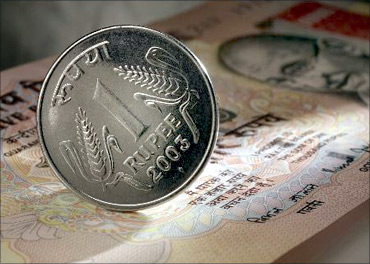 | « Back to article | Print this article |
Five mistakes to avoid this financial year
Like many others, Hiren Lakhani also resolves to minimise his tax liability each year.
Yet, he made the basic mistake of not exhausting his Section 80C and 80CCF limit of Rs 1.2 lakh in the last financial year.
This 38-year old is a homeopathic doctor by qualification and a teacher by profession. He runs coaching classes with his father and falls under the highest tax bracket.
"Ideally, tax-saving should not be looked at in isolation. It should be linked to a financial goal," says Suresh Sadagopan, a certified financial planner. For instance, if the goal is retirement, one can look at instruments such as the Public Provident Fund.
Click NEXT to read on
Five mistakes to avoid this financial year
They should first purchase an adequate health insurance for themselves and their family (exemption of Rs 15,000 under Section 80D). Next, they can proceed to exhausting Section 80C, followed by the 80CCF limits.
Click NEXT to read on
Five mistakes to avoid this financial year
He can earn double-digit returns over the three-year lock-in before the tax benefit to these schemes goes away with the Direct Taxes Code next year.
However, choosing only the instrument is not sufficient. Lakhani must invest via a systematic investment plan (SIP) over a year to average out the market volatility.
Click NEXT to read on
Five mistakes to avoid this financial year
Like 28-year-old Ameya Shete, who over the past three years has purchased several insurance plans.
And, in his own words, "My biggest mistake is that I have no consolidated record of my tax-saving investments. So, I regularly pay my premiums, but I am unaware of any duplication in my portfolio." The result: he is paying much more than Rs 1 lakh as premiums each year.
Click NEXT to read on
Five mistakes to avoid this financial year
Adding to his woes, he liquidated all his stock holdings last year to part-pay for his new house.
At present, he doesn't have any investment and is paying equated monthly instalments (EMIs) towards his loan of Rs 30,000.
Click NEXT to read on
Five mistakes to avoid this financial year
Besides using the various sections of the Income Tax Act to plan taxes, you can consider distributing your income among your family members to lower your overall income.
Click NEXT to read on
Five mistakes to avoid this financial year
Further, Lakhani can keep their salaries below the basic exemption limits applicable plus additional deduction limit of Section 80C and 80CCF.
Click NEXT to read on
Five mistakes to avoid this financial year
And, about the non-earning members of the family, you can create investments in their name such as opening a five-year fixed deposit in Lakhani's mother's name. This way, any return earned on the same, otherwise taxable can become tax-free.
Click NEXT to read on








